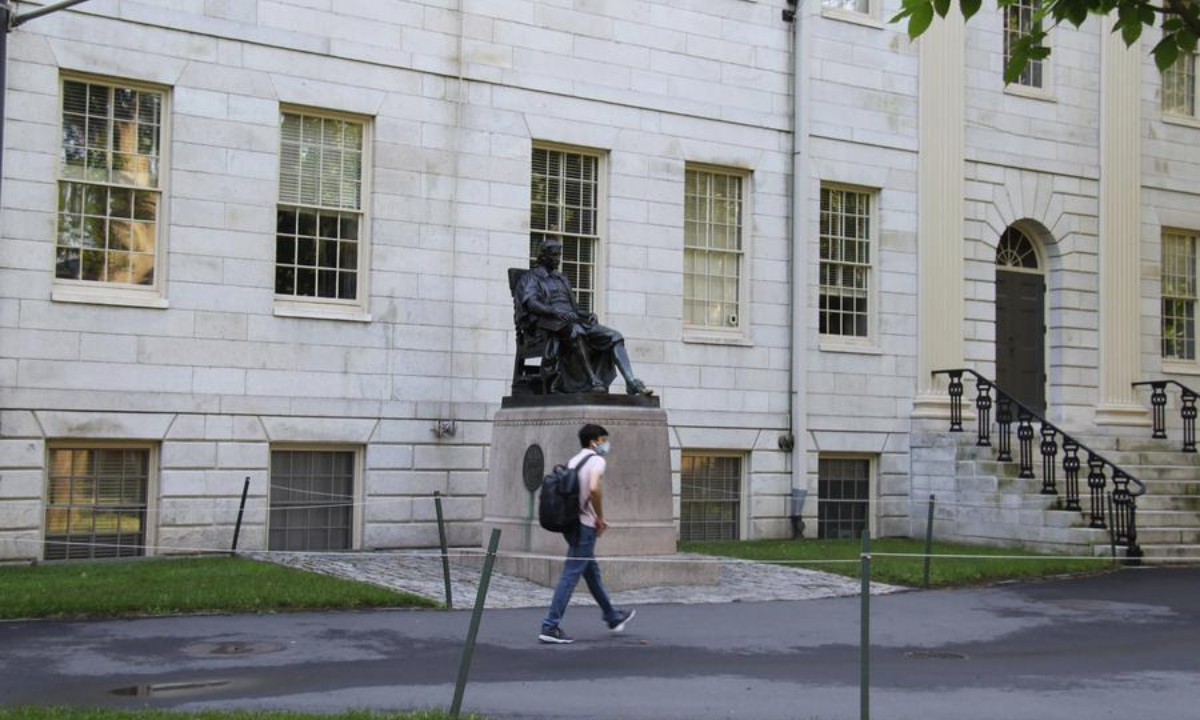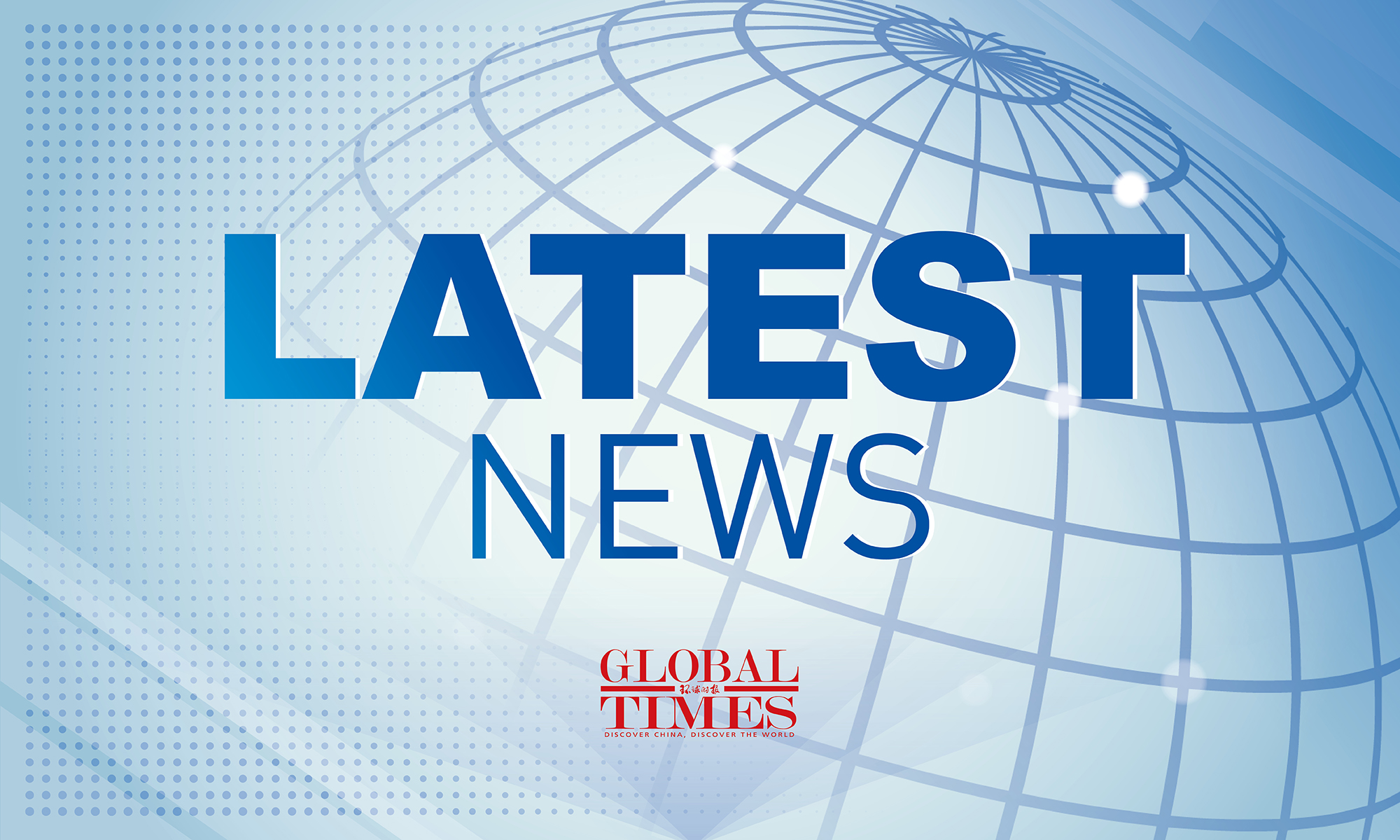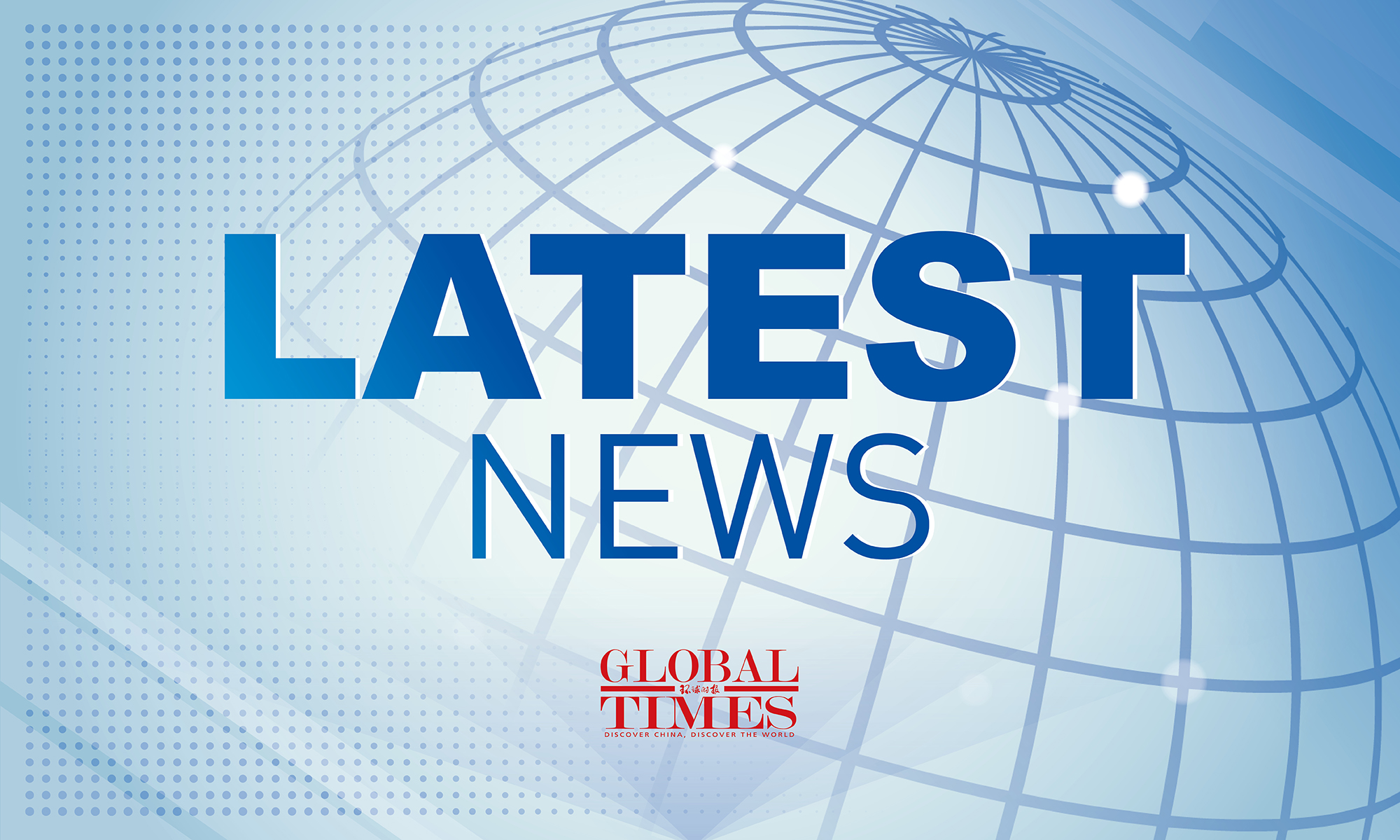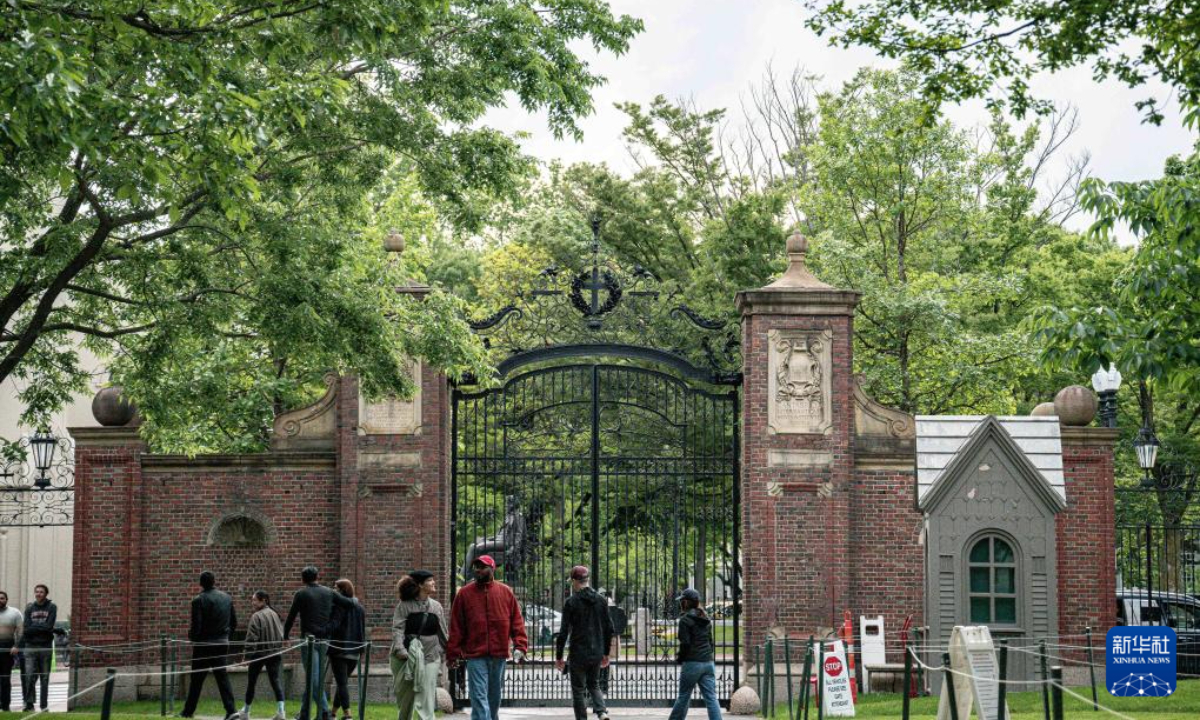
A student walks on the campus of Harvard University in Cambridge of Massachusetts, the United States, on July 14, 2020. (Photo by Fan Lin/Xinhua)
US President Donald Trump signed a proclamation to restrict foreign student visas at Harvard University, the White House said on Wednesday. The move marked the latest US government's crackdown in a multifront attack on the nation's oldest and wealthiest university, Reuters reported.
Besides suspending the entry into the US of any new Harvard student as a nonimmigrant under F, M, or J visas, the order directs the US State Department to consider revoking existing F, M, or J visas for current Harvard students who meet the Proclamation's criteria, according to the White House announcement.
The University is aware of President Trump's proclamation. This is yet another illegal retaliatory step taken by the Administration in violation of Harvard's First Amendment rights. Harvard will continue to protect its international students, Harvard said in statement on Wednesday.
Harvard said the May 29 court decision allows the University to continue enrolling international students and scholars while the case moves forward. Harvard will continue to take steps to protect the rights of our international students and scholars, members of our community who are vital to the University's academic mission and community -- and whose presence here benefits our country immeasurably.
Also on Wednesday, the US President signed a proclamation banning travel from certain countries citing national security concerns, according to Reuters.
According to the announcement of the White House website, the proclamation fully restricts the entry of nationals from 12 countries, including Afghanistan, Myanmar, Chad, Republic of the Congo, Equatorial Guinea, Eritrea, Haiti, Iran, Libya, Somalia, Sudan, and Yemen. It partially limits the entry of nationals from seven countries including Burundi, Cuba, Laos, Sierra Leone, Togo, Turkmenistan, and Venezuela.
Last month, the US State Department ordered all US embassies and consulates to "immediately begin additional vetting" for anyone seeking a visa to travel to Harvard University "for any purpose," CNN reported.
Harvard argues the Trump administration is retaliating against it for refusing to accede to its demands to control the school's governance, curriculum and the ideology of its faculty and students, per Reuters.
The restrictions on new student visas at Harvard followed previous moves to freeze billions of dollars in grants and other funding, end the school's tax-exempt status and to open an investigation into whether it discriminated against white, Asian, male or straight employees or job applicants, Reuters said.
On May 23, the US government revoked Harvard's ability to enroll foreign students, but the move was later blocked by a federal court in Boston, AP reported.
When asked about comments about the US government's revoking of Harvard University's ability to enroll international students, Chinese Foreign Ministry spokesperson Mao Ning said on May 23 that China-US education cooperation benefits both sides.
"China opposes politicizing education cooperation. What the U.S. seeks to do will undoubtedly hurt its own image and reputation in the world. China will firmly protect the legitimate and lawful rights and interests of Chinese students and scholars overseas," Mao said at routine press briefing.
Global Times



